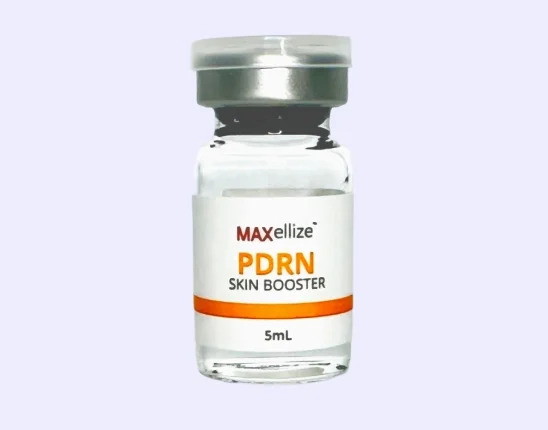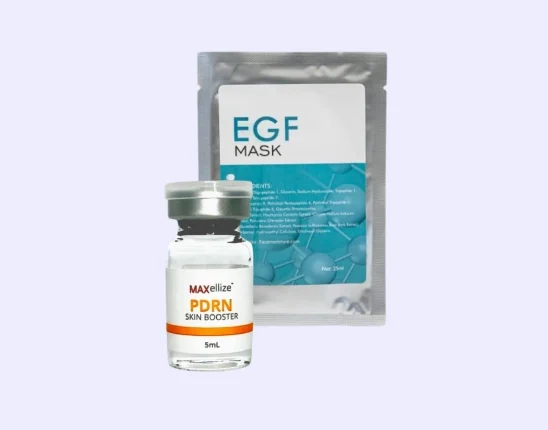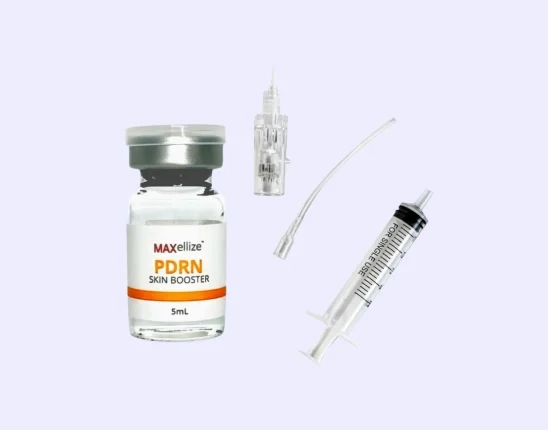Like other growth factors found by basic science, hematopoietic growth factors aid in the healing and production of new cell lineages in the body to promote healing and cell growth. These are regulatory molecules that aid in the creation, maintenance, and differentiation of new and old blood cells that are required to keep the body healthy.
So what exactly is the role of hematopoietic growth factors? Hematopoietic growth factors play a central role in the body’s hematopoietic system which involves the bone marrow, spleen, tonsils, and lymph nodes’ functions when producing blood cells. While they can help multiple cells regrow and treat several injuries, they are most often linked with cancer treatments and ensuring proper recovery after treatment.
What’s The Role of Hematopoietic Growth Factors?
Hematopoietic growth factors are made up of several molecules and chemicals that are primarily produced in the human kidney. Like other growth factors, they boost cell proliferation and play a central role in the natural healing process of the body.
Hematopoietic growth factors in particular are responsible for the creation and maintenance of blood progenitor cells and functional activation of mature cells. In other words, they’re in charge of forming, maturing, and differentiating the red and white blood in your body.
Types of Hematopoietic Growth Factors
The hematopoietic growth factor is used as an umbrella term for hematopoietic cytokine and proteins that all aid in the production of blood cells and blood cell repairs. Hematopoietic growth factors include several molecules and proteins in their molecular sequence and cell lineages that have differing biological effects.
These include interleukin-3 (IL-3), granulocyte colony-stimulating factor (G-CSF), granulocyte-macrophage colony-stimulating factor (GM-CSF), macrophage colony-stimulating factor (M-CSF), and erythropoietin (EPO).
While they all work towards the same end result, each of these factors, proteins, and molecules play a specific role. Here is a brief overview of what each part of the hematopoietic growth factor actually does:
1) Interleukin-3
Interleukin-3 is considered a highly potent hematopoietic growth factor that helps with cell proliferation as well as regulating and differentiating hematopoietic progenitor cells in the body.
They’re capable of creating cells to boost superantigen peptides and antigen-derived peptides which help activate the production of T cells. While primarily used for the creation of t cells, they can also regulate and activate mature neutrophils or macrophages in your body. IL3 is usually created by pre-existing t cells as well as monocytes/macrophages and stroma cells.
2) Granulocyte Colony-Stimulating Factor (G-CSF)
Like IL-3, Granulocyte Colony-Stimulating Factor is beneficial to the growth and production of white blood cells in the bone marrow. In particular, G-CSF is classified as a blood growth factor that induces the creation of neutrophils and white blood cells.
With white blood cells being one of the primary antibodies protecting your body against infections, G-CSF is key in preventing virus and fungal infections.
While G-CSF production is an important growth protein in your body, high concentrations of it may be harmful to the body. In some cases, too much G-CSF can cause myelodysplastic syndromes and acute leukemia due to the overproduction of white blood cells.
If this G-CSF imbalance is left untreated, patients with myelodysplastic syndromes or acute leukemia have been shown to progress much faster than usual and could result in death. It’s best to use this only in recommended amounts so as to avoid overwhelming your body.
3) Granulocyte-Macrophage Colony-Stimulating Factor (GM-CSF)
Granulocyte-macrophage colony-stimulating factor (GM-CSF) is a growth factor that often functions as a cytokine in the body. GM-CSF production plays a crucial role in vitro and during adulthood. GM-CSF also functions in close relation to the myeloid cells in your body which travel through your blood vessels and lymphatic system to prevent or repair damaged cells.
While in vitro and in adulthood, GM-CSF is in charge of myeloid cell proliferation and inflammatory stimuli as well as other infection-fighting properties. GM-CSF uses an active heterodimeric cell surface receptor complex to signal myeloid cells to areas of infection or injury wherein myeloid cells will rapidly congregate and repair any tissue damage to the area.
4) Macrophage Colony-Stimulating Factor (M-CSF)
Like the previously mentioned growth factors, Macrophage colony-stimulating factor (M-CSF) is considered to be a hematopoietic growth factor that aids in cell reproduction, differentiation, and monocyte activity.
M-CSF in particular is responsible for the differentiation of myeloid progenitors into varying cells and molecules, More often than not, they’ll become heterogeneous monocytes, macrophages, dendritic cells, and bone-resorbing osteoclasts.
As a type of colony-stimulating factor, M-CSF can be considered as a byproduct or secretion of glycoproteins that latch onto hematopoietic stem cells. This in turn is what causes cells to proliferate and differentiate into different blood cells. While white blood cells are more often created by the M-CSF process, they’ll also create red blood cells if needed by the body.
5) Erythropoietin (EPO)
Erythropoietin is a glycoprotein cytokine that is produced in your kidneys as a response to the low oxygen levels in your cells aka cellular hypoxia.
When you’re experiencing cellular hypoxia, your body will release EPO to signal the need for your bone marrow to produce red blood cells and increase oxygen circulation throughout your body.
With EPO boosting red blood cell proliferation, increasing and stimulating the cytokine concentration in your body has been used in treating blood diseases like anemia and a few kidney diseases as well.
When Are Hematopoietic Growth Factors Most Beneficial?
Hematopoietic growth factors have gone through several studies and have been shown to be successful and have many beneficial effects in several clinical trials, particularly with chemotherapy and radiation.
In clinical applications, hematopoietic growth factors have been shown to have a positive response to infections and help manage recovery and chronic disease effectively. To boost hematopoietic growth factors and their biological benefits, medical professionals will use an injection to administer hematopoietic cells underneath the skin in your arm, leg, or thigh.
This should be absorbed quite easily by your tissues and blood vessels as it’s naturally occurring and help manage your blood deficiencies. With the increase in hematopoietic growth factors in your body, new red and white blood cells will be able to help patients recover faster from infections, injuries, or other diseases.
Additionally, increasing the hematopoietic growth factors in a patient’s body could help in managing chronic diseases or medical conditions. Here are some examples of an increase of Hematopoietic Growth Factors may be beneficial to treating and managing an illness:
1) Chemotherapy-Induced Anemia in Cancer Patients
While anemia is a very controllable blood condition, chemotherapy-induced anemia comes with its own set of complications that make the condition more hazardous to your health. After your completion of chemotherapy, your blood cells will most likely be damaged and destroyed by the high frequencies of radiation you experience regularly.
While this may remove the cancerous cells and solid tumors, more often than not other healthy and necessary cells including blood cells are destroyed in the process. With radiation taking a toll on the production of blood cells, chemo-induced anemia has been said to cause quite a significant decline in the patient’s quality of life post-chemotherapy.
As a common complication of chemotherapy, chemotherapy-induced anemia has had several clinical studies conducted to address this concern. Previous studies have found that boosting hematopoietic growth factor levels could be a potential treatment and help with blood cell proliferation after a cycle of chemotherapy.
Using recombinant hematopoietic growth factors, doctors can inject the concentration of growth factors to stimulate white and red blood cell production addressing the effect of varying forms of anemia including, chemotherapy-induced anemia.
2) Myelodysplastic Syndromes (MDS)
Myelodysplastic syndromes (MDS) is a complex syndrome wherein cancer cells infiltrate the bone marrow and prevent the production of healthy blood cells. If left unmanaged or discovered during the late phase of the disease, the MDS does have the potential to be fatal due to bleeding or low blood cell counts.
To help with the symptoms of MDS, the use of hematopoietic growth factors has been considered a popular treatment for myelodysplastic syndromes for years. While not considered as curative medicine, it does have the potential benefit of managing the condition a little better.
This is due to the fact that therapeutic practices that use hematopoietic growth factors have been shown to boost peripheral blood count in patients and possibly improve bone marrow malfunctions brought on by MDS.
3) Kidney Disease
Chronic kidney disease is a condition wherein a patient progressively losses kidney functions and experiences renal failure. While the main concern is your body’s inability to filter waste and toxins, chronic kidney disease can also cause several complications including blood levels in your body.
Due to the loss of kidney function, the kidney releases less erythropoietin which is a vital chemical in signaling blood production in the bone marrow. With less erythropoietin, chronic kidney disease patients often get diagnosed with anemia due to their diminishing blood count.
To counteract the limited production of erythropoietin, hematopoietic growth factors have been used as a supportive care treatment as it contains high amounts of erythropoiesis-stimulating agents.
By synthetically boosting erythropoietin the bone marrow is stimulated to create more blood cells alleviating some of the symptoms brought on by chronic kidney disease anemia and allowing hematopoietic recovery.
4) Cancer Infections
When undergoing anticancer therapy (such as a cycle of chemotherapy) to remove solid tumors, patients have a high risk of getting an infection. This is often due to the destruction of red blood cells and t cells from the chemotherapeutic agents.
In turn, this causes chemotherapy-induced neutropenia, thrombocytopenia, anemia, and other complications causing the patient’s body to be more susceptible to infections. To prevent possible complications and infection from treatments, doctors have found that the properties of hematopoietic growth factors can significantly reduce the chances of developing an infection.
With the different molecules and chemicals found in hematopoietic growth factors that improve the bodies response to infections, many cancer patients have not only avoided post-treatment infections but have also had a better recovery process and improved quality of life once in remission.
5) Bone Marrow Transplant
Like cancer infections, hematopoietic growth factors can help reduce the chances of bone marrow transplant infections or rejection. When radiation and high-dose chemotherapy damages are too severe, patients will often need a bone marrow transplant to replace their nonfunctional bone marrow.
While hematopoietic growth factors can’t heal the already damaged bone marrow or boost peripheral blood stem cell production, they do offer a clinical benefit that ensures the patient doesn’t develop neutropenia which can lead to different infections.
With blood levels and blood cells being a vital component of human health, conditions that affect its production and destroy healthy blood cells can be hazardous to your health and in some cases be fatal.
While some of these blood conditions are just byproducts of more urgent diseases, it’s important to address them and treat them as soon as possible. Overall, while hematopoietic growth factors have yet to be used as curative medicine, they can help manage and improve several conditions people may face.
If you’re experiencing any of the aforementioned conditions or you’re about to begin chemotherapy, you may want to ask your doctor if having hematopoietic growth factor therapy or injections could help you in your post-treatment recovery.
Purchase The Best Medical Tools and Supplies at FACE Med Store
When it comes to clinical trials, post-treatment recovery, disease management, patients look to medical professionals for the answers. From therapy to injections, hematopoietic growth factors treatments may be the answer to improving patients’ quality of life post-treatment, but this can only be done with proper administration. While years of experience and knowledge of a trained physician can’t be replaced, having the right tools can give you several clinical benefits during the procedure.
At FACE Med Store, we understand the crucial role and effect quality tools and supplies can have not only on the doctors but also to the patient population. That is why we offer the best medical devices and equipment at an affordable price to our clients and clinics across the country. If you’re in search of a particular device or tool, contact us today to see our stock list and purchase today.
Learn More: How To Use ZO Growth Factor Serum















